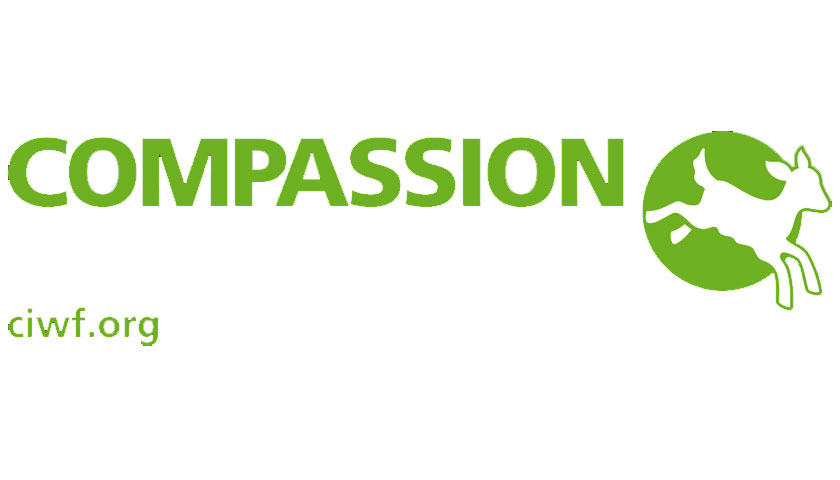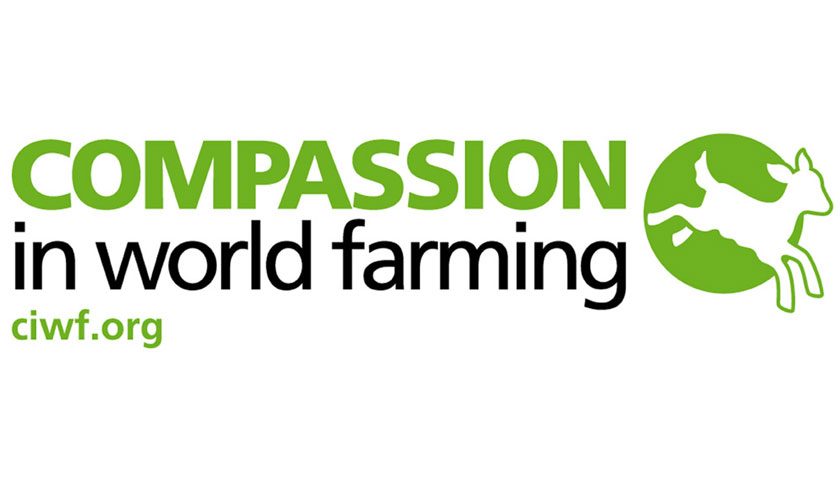Leading farm animal welfare charity Compassion in World Farming has released a new report which highlights the damaging impacts Scottish salmon farming is having on fish welfare and the environment.
The biggest ever exposé into the Scottish salmon industry reveals suffering on an industry-wide and endemic scale, breaches in animal welfare legislation and shocking mortality rates. The undercover investigation and accompanying report titled ‘Underwater Cages, Parasites & Dead Fish: Why a Moratorium on Scottish Salmon Farming Expansion is Imperative’, released today by a global network of NGOs in 30 countries and led by farmed animal welfare charity Compassion in World Farming, uncovers the grim reality for many fish raised in sea cages producing world-famous Scottish salmon.
Scotland is the third largest producer of farmed Atlantic salmon worldwide (approximately 38 million fish produced in 2019), with exports to over 50 countries, and the Scottish government supports plans for massive industry expansion by 2030. Over 96% of Scottish salmon production is handled by five companies: Cooke Aquaculture, Grieg Seafood, Mowi, Scottish Sea Farms and The Scottish Salmon Company. Compassion investigated 22 farms in total, both using drone technology and, at 6 farms, underwater divers, between September and November 2020. On several of these farms, investigators found severe sea lice infestations and high levels of mortalities.
Investigators also found fish crammed in barren underwater cages, where these natural migrators have nothing to do but swim aimlessly in cramped conditions for up to 2 years. These animals suffer to such an extent that as many as a quarter will die before they even make it to slaughter.
“Salmon are silently suffering, out of sight, in cruel underwater factory farms across Scotland. Even the experienced investigators were shocked at what they found,”saidSophie Peutrill, Compassion in World Farming’s Global Campaign Manager for fish welfare. “The footage reveals salmon withdeformities and disease, missing eyes and large chunks of flesh and skinbeing eaten away by sea lice.This is completely unacceptable.
“Salmon are sentient beings – they should not be subjected to such awful misery. There is an industry-wide failure to protect these animals, and this must change. We need an immediate halt on the continued expansion of Scottish salmon farming”.
Sea lice are parasites that feed on skin, blood and mucus of fish. Their numbers have grown with the expansion of the salmon industry, which is yet to implement an effective, welfare positive and environmentally friendly treatment or prevention method. Methodsthe industry has developed in an attempt to rid the fish of sea lice – including chemical baths, thermolicer and hydrolicer treatments –are cruel and ineffective. Many fish die as a result.
Not only is salmon farming bad for animal welfare, but it is also damaging the environment. Organic and chemical waste from Scottish salmon farms is changing the chemistry of sediments and killing marine life on the seabed. Waste from farms can lead to poor water quality and harmful algal blooms. Medicines and chemicals, such as antibiotics and insecticides, are also released into the environment, and many of the latter are known to be toxic to fish and other marine organisms, as well as birds and mammals. In addition, farming carnivorous fish, such as salmon, is responsible for much of the industrial fishing of our decimated oceans. Millions of tonnes of wild-caught fish are reduced to fishmeal and fish oil in order to feed fish in intensive farms.
“Given the numerous welfare and environmental issues within the Scottish salmon industry, plans to expand are completely irresponsible”, said Dr Krzysztof Wojtas, Head of Fish Policy at Compassion in World Farming.
“We are calling on the Scottish Government for a moratorium on the expansion of the Scottish Salmon industry. Confining carnivorous species in underwater cages and depleting our oceans of wild fish in order to feed them, is pure madness. Ultimately, we directly challenge whether farming essentially wild, migratory fish, such as salmon, has any place in a sustainable food system.”
The Scottish salmon farming industry is rife with fish welfare issues and serious environmental problems. At current production levels sea lice infestation and disease are out of control, causing fish suffering on an alarming scale and threatening wild fish populations. Compassion has launched an open letter to the Scottish government, urgently calling for a moratorium on the expansion of the industry, with a view to phasing out intensive salmon farming.

